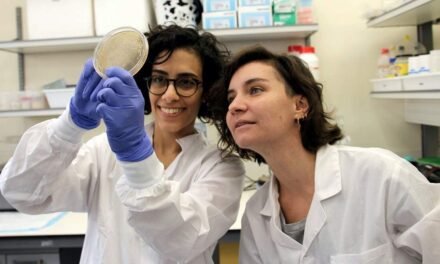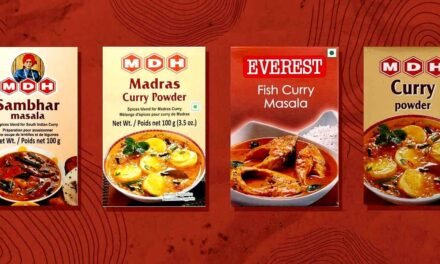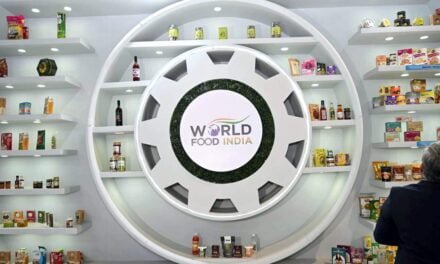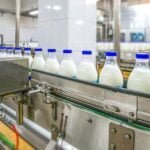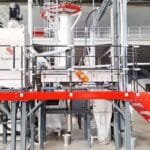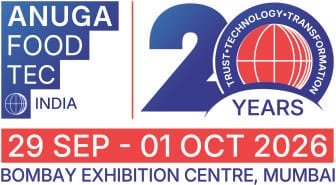The sustainability report reveals reductions in greenhouse gas emissions, innovative product developments, and expansive community initiatives, Tetra Pak underscores its role in fostering a more sustainable future across global food systems.
Sweden-based packaging developer Tetra Pak has issued its 25th sustainability report, which tracks the progress of the company’s sustainability agenda for the 2023 fiscal year. The report focuses on five interdependent areas, including food systems, circularity, climate, nature and social sustainability.

Notably, the company says its report shows a 20 percent reduction in value chain greenhouse gas (GHG) emissions and a 47 percent reduction in GHG emissions across its own operations since 2019. The latter puts Tetra Pak on track to meet its target of net-zero GHG emissions in its own operations by 2030, it says, and supports its long-term ambition to work with suppliers, customers and other stakeholders to achieve net-zero GHG emissions across the value chain by 2050.
Tetra Pak points to another major milestone in the report: the launch of an aseptic beverage carton featuring a paper-based barrier, reducing its carbon footprint by one-third and bringing the company a step closer to developing what it claims is the world’s most sustainable food package. Tetra Pak says this item was the result of a 100-million-euro ($108.6 million) investment in packaging research and development in 2023, with the same investment planned annually for the next 5-10 years.

“Collaboration across the food industry is ever more important to feed a growing population sustainably,” says Tetra Pak President and CEO Adolfo Orive. “Our global presence and end-to-end solutions give us opportunities every day to collaborate with stakeholders across the value chain, from farmers and food producers to suppliers, policymakers, consumers and others. We understand the responsibility that comes with this role. We remain committed to playing our part to transform the world’s food systems, to ensure they are more secure, resilient and sustainable.”
The company’s sustainability report highlights additional achievements from the 2023 fiscal year, as well as its ongoing initiatives, including:
- Expanding school feeding programs by helping 64 million children in 49 countries get access to milk and other nutritious beverages through such programs;
- Accelerating recycling, increasing the volume of carton packages collected and sent for recycling across the world by 7 percent compared with 2022. Additionally, the report claims a 14 percent increase in recycling of the layers of polyethylene and aluminum in carton packaging, or polyAl.
- Getting recognition for leadership in corporate transparency and performance for the eighth consecutive year with its inclusion in the CDP Forests “A List.” Additionally, the company received an A-minus rating in water security, despite it being the first year of reporting in this area.
- Actively implementing the United Nations Guiding Principles on Business and Human Rights.

The needed transformation of global food systems
The rapid transformation in how food is grown, produced, processed, distributed and consumed has delivered major human development benefits over the last decades. However, these transformations are pushing us beyond the Earth’s planetary boundaries1 and generating considerable health, environmental and socio-economic challenges.
Food systems currently account for more than one-third of global GHG emissions2. At the same time, more than a third of food grown and produced is lost or wasted3. while over 2 billion people struggle to get regular access to sufficient food4. Extreme climate and environmental conditions, coupled with a turbulent global context of conflict, struggling economies, shifting markets and rising inequity, mean that the world’s food systems are both causing and facing a crisis.

To ensure that everyone, everywhere has access to safe food – and to address these complex challenges – all players across the food value chain need to play their part. Collaboration is needed to help create more secure, sustainable and resilient food systems5. This requires coordinated interventions that recognise the interconnections between food production, health, and socio-economic and environmental issues.
Global influences in 2023
Throughout 2023, further disruptions left food systems vulnerable. Economic and geopolitical shocks, such as the war in Ukraine, continued to have a significant impact on food supplies. Inflation in many countries has been driving up food costs, contributing to the increase in the overall cost of living for many people.
The interconnectedness of global food systems with climate and nature is increasingly recognised, and in 2023, the UN Climate Change Conference COP28, which took place in the United Arab Emirates (UAE), put food systems firmly on the international climate agenda. Over 150 countries signed up to the UAE Declaration on Sustainable Agriculture, Resilient Food Systems, and Climate Action, committing to adapting and transforming food systems and including food and land use targets in their Nationally Determined Contributions (NDCs) and National Adaptation Plans (NAPs) by 20256.
The full report can be found here.
About Tetra Pak
Tetra Pak operates as a leading company in food processing and packaging solutions worldwide. The company collaborates closely with food and beverage manufacturers and suppliers to deliver safe, innovative, and resource-efficient products and solutions. These offerings cater daily to the needs of millions of individuals across more than 160 countries.
Originating over 70 years ago, Tetra Pak embarked on a mission to enhance food safety and accessibility globally. Today, the company remains committed to innovation aimed at safeguarding food, people, and the environment. Through the development of customized food processing and packaging solutions and associated services, Tetra Pak addresses the diverse requirements of its global clientele. Leveraging cutting-edge science and technology, a dedicated team of innovators, collaborators, and experts collaborates tirelessly to tackle significant challenges within the global food and beverage sector.
Tetra Pak forms an integral part of the Tetra Laval Group, alongside Sidel and DeLaval, collectively dedicated to advancing technologies for efficient food production, packaging, and distribution.



